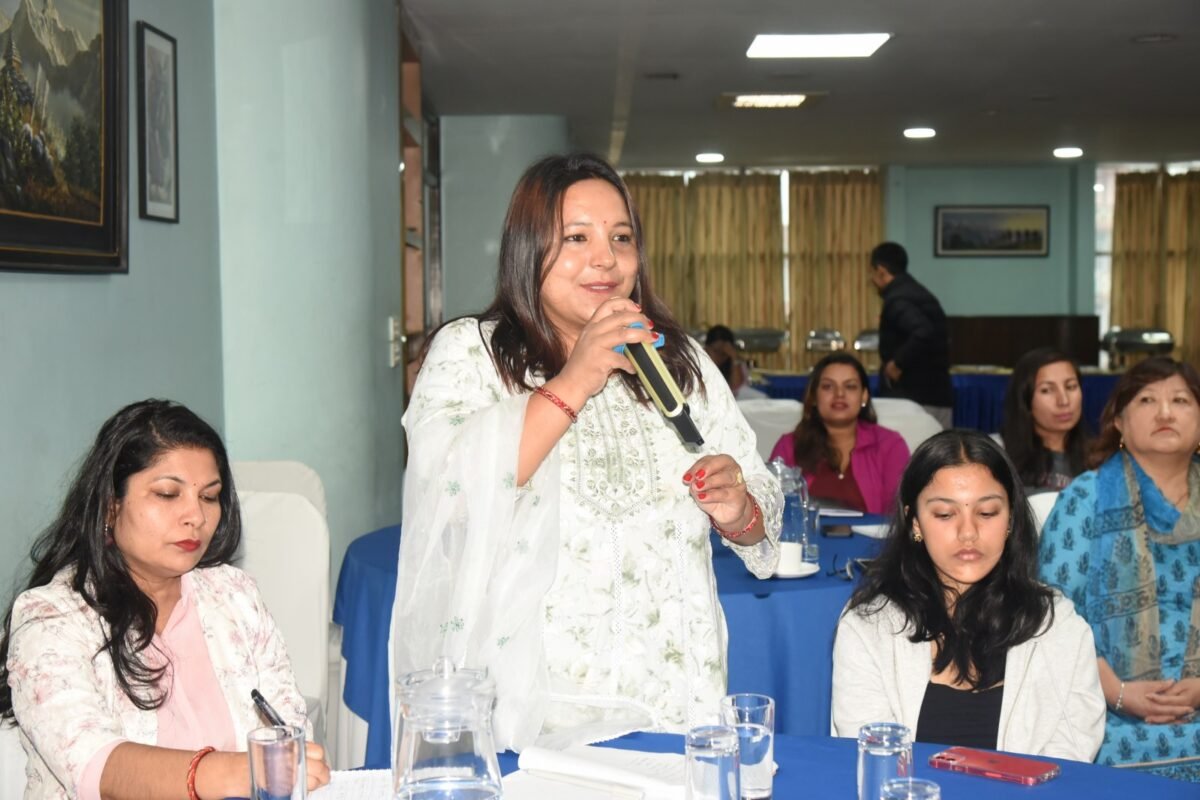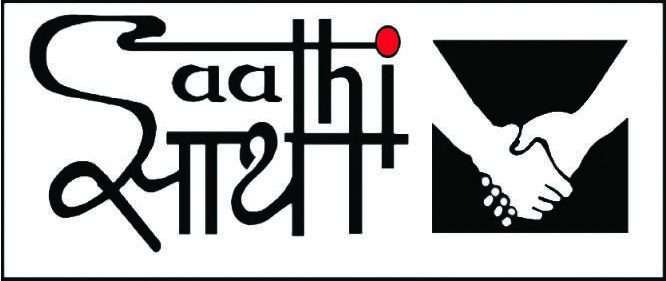April 28, 2025 | Kathmandu – Saathi, with the support of FJS International Pvt. Ltd., organized a high-level interaction program titled “Commemorating 16 Years of the Domestic Violence Act: Achievements, Challenges, and Way Forward” in Kathmandu. The event served as a crucial platform for stakeholders to reflect on the implementation of the Domestic Violence (Crime and Punishment) Act 2066, share experiences, and chart a collaborative way forward in combating domestic and gender-based violence (GBV) in Nepal.
Ms. Palita Thapa, GBV Program Manager at Saathi, welcomed the participants and highlighted the objectives of the event—fostering dialogue, reviewing progress, and identifying actionable strategies for the future.
High-Level Participation and Commitment
The event brought together a diverse group of participants including representatives from civil society, media, government, law enforcement, healthcare, and development partners. The shared commitment to ending GBV through a coordinated, survivor-centered approach was strongly echoed throughout the day.
Remarks by the Chief Guest
Hon’ble Kamala Parajuli, Chairperson of the National Women Commission, underscored the urgency of addressing economic dependency, promoting girls’ education, and ensuring holistic, survivor-centered interventions. She called for strengthened institutional accountability and survivor empowerment.
Keynote Address
Ms. Bandana Rana, Member of the CEDAW Committee, delivered the keynote address, emphasizing ongoing implementation challenges, the importance of aligning national efforts with CEDAW recommendations, and the need for enhanced collaboration between state and civil society actors.
Panel Discussion Highlights
A robust panel discussion, moderated by Ms. Kamala Panthi, President of Sancharika Samuha, brought together experts from various sectors:
- DSP Rupa Thapa, Nepal Police: Advocated for improved gender-sensitive policing, stronger investigation processes, and greater female representation within police units.
- Senior Advocate Meera Dhungana, FWLD: Highlighted the under-recognition of economic violence, limitations in protection measures, and the need for legal responses to live-in relationships and post-divorce violence.
- Dr. Sapana Amatya Vaidya, Paropakar Maternity Hospital: Emphasized the integration of mental health services and the need to equip medical professionals for legal testimony.
- Gunaraj Luitel, Chief Editor, Nagarik Daily: Stressed ethical media practices, ensuring survivor confidentiality, and the development of a journalist code of conduct.
- Ms. Mamta Bisht, Ministry of Women, Children and Senior Citizens: Provided updates on the upcoming GBV Umbrella Act and the integration of a data system to improve coordination and support for all survivors, including those with disabilities.
Key Takeaways and Way Forward
The discussions culminated in a collective agreement on the following priorities:
- Strengthen multi-sectoral collaboration across law enforcement, health, legal, and social services.
- Accelerate finalization and implementation of the GBV Umbrella Act.
- Mainstream mental health within survivor support frameworks.
- Promote ethical, survivor-centered media reporting.
- Enhance local-level coordination and ensure accessible, inclusive services for survivors.
The event concluded with a shared resolve to intensify efforts to prevent and respond to domestic violence, reaffirming that sustained action, inclusivity, and survivor-centered approaches remain key to achieving gender justice in Nepal.












